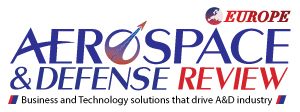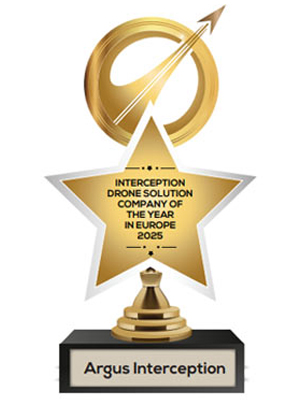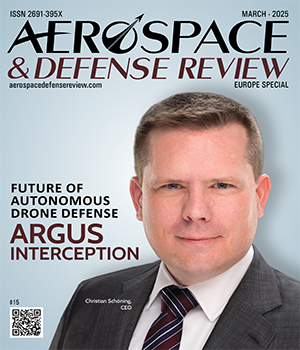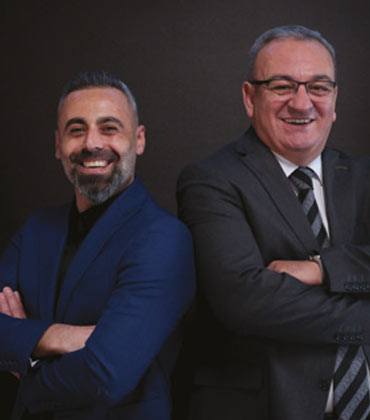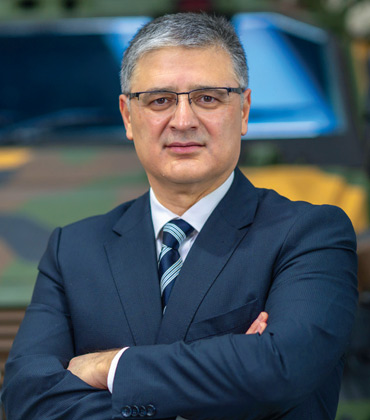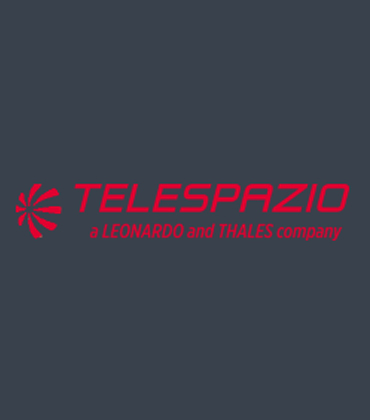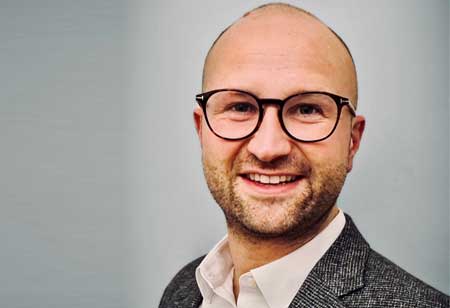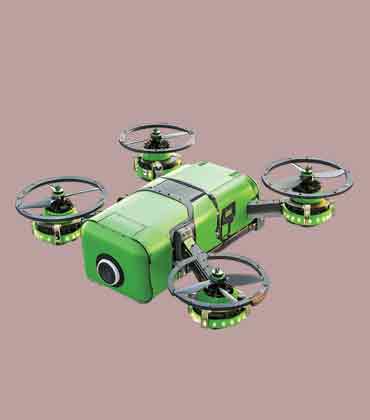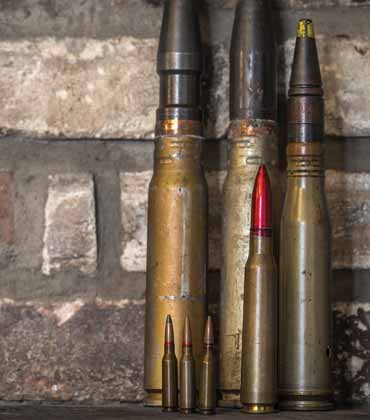THANK YOU FOR SUBSCRIBING
Argus Interception’s autonomous drones are the guardians of the sky, spotting and neutralizing threats before they can strike. Its new wave of high-tech defense solutions reshapes security in real time. Founded by a team with deep military defense and engineering expertise, this young company has emerged as a key player in the drone security and interception industry. With unmatched technical sophistication and rigorous testing in real-world scenarios, Argus is redefining how nations, organizations and events safeguard against drone incursions. Argus aims to safeguard critical civilian and military infrastructure and high-stakes events from unauthorized and hostile drones, addressing the rising number of drone-related incidents near government buildings, airports and military sites. As the demand for effective, legally compliant drone defense solutions grows, it has secured partnerships with homeland defense, border patrol, and law enforcement agencies throughout Germany, quickly becoming the trusted choice to meet high-security requirements. Building on its success in Europe, Argus is now poised for global expansion and is ready to introduce its autonomous interceptor drone technology to civilian and non-war markets in Western regions, including North America, Europe and Australia. From Concept to Combat-Proven Innovation Argus began at Helmut Schmidt University/University of the Federal Armed Forces Hamburg. The company’s founders, experienced in defense operations, collaborated with researchers there to develop an interceptor drone prototype. Initially an academic study, the technology quickly evolved to deployment in live war scenarios, transforming from a concept to a fully operational, combat-ready solution. “Argus was built on a foundation of rigorous field testing rather than hypothetical models. Our system has been trialed and refined in active conflict zones, providing invaluable insights into drone interception in high-stakes situations,” says Christian Schöning, CEO. These real-world applications give Argus’s products a “mission-proof” credibility that sets them apart from competitors relying solely on lab testing. At the same time, Argus’s partnerships with universities provide a solid foundation for ongoing research and rapid innovation, particularly in areas like swarm technology, ensuring that its products evolve in line with the latest advancements and real-world needs. Adaptability for Diverse Threat Environments While Argus has proven its technology in high-conflict zones, it is equally effective in civilian contexts. For non-military applications, the risk profile of drones is generally lower, as these drones are usually not weaponized. But they still pose significant risks, such as potential collisions with commercial aircraft or intrusion into restricted areas around government buildings and military installations.
Defense Spare Parts Production and Machining
At Kale Savunma, a Turkish company located in Ankara, success is built on the trust and satisfaction of its customers. With over four decades of experience delivering precision-engineered solutions, the company has become a trusted partner to Turkey’s defence industry organizations. Combining technical expertise with a steadfast commitment to quality, Kale Savunma provides machined components and assemblies designed to perform reliably in critical applications. True to its name, which means “castle” in Turkish, Kale Savunma embodies the principles of strength and defence in its mission and operations. It has carved a niche for itself through customer-centricity, lean production methodologies, and an unwavering dedication to delivering excellence under tight deadlines. Kale Savunma plays a pivotal role in Turkey’s national defence initiatives, contributing to projects that enhance the country’s self-reliance and security. Its portfolio spans aerospace components, precision weapon systems, and mission-critical subsystems, reflecting its ability to address diverse needs within the defence sector. Its motto, “Defense begins from Kale,” reflects this mission, emphasizing the company’s integral role in strengthening the nation’s defence infrastructure. “Customer-first is not just a slogan; it’s our operating principle,” explains Oktay Tuncer, General Manager. Central to Kale Savunma’s philosophy is its customer-centric philosophy. The company’s mission goes beyond producing high-quality products—it strives to build strong, enduring relationships with its clients by understanding their specific requirements and consistently exceeding expectations. A Legacy Forged in Precision and Reliability Founded as Kale Torna in 1974 by founding father, İshak Dönmez, the company rebranded as Kale Savunma by founding son Özgür Dönmez to align with the growing demands of Turkey’s defence industry. This transformation began its journey toward achieving globally recognized quality standards. The ISO 9001 certification, a hallmark of effective quality management systems, was pivotal in ensuring the company’s processes aligned with the rigorous standards of original equipment manufacturers (OEM) in the defence sector. “We are proud to be certified by Turkey’s Secretariat of Defense Industries and the Military Factories General Directorate,” says Tuncer. These certifications enable it to contribute to critical national projects and reflect a deep commitment to precision, reliability, and customer-focused service—values that remain central to the company’s operations today. Customer-Centric Philosophy: Building Stronger Partnerships Kale Savunma transforms business relationships into lasting partnerships. The company maintains open and continuous communication and ensures that every client’s requirements are thoroughly understood and addressed throughout the production process. From initial technical drawings to delivering precision-engineered components, Kale Savunma’s team demonstrates responsiveness and flexibility. Whether managing expedited production timelines, adjusting specifications, or meeting budget constraints, the company consistently adapts to evolving client needs. This proactive engagement fosters trust, satisfaction, and loyalty, cementing Kale Savunma’s reputation as a trusted partner. Lean Production for Maximum Efficiency Complementing its customer-first approach, Kale Savunma employs lean production principles to maximize efficiency and maintain the highest quality standards. By designing processes that minimize waste, reduce errors, and optimize resource utilization, the company ensures that every step of production adds value without compromising quality. .
Frontrunners of Defence Innovation in Armored Vehicles
Nurol Makina is a global leader specializing in the engineering and manufacturing of advanced armored vehicles. From tactical wheeled platforms to special purpose platforms, the company’s innovations are designed to meet the diverse needs of military and law enforcement agencies worldwide. Built to endure the harshest environments, these battle-tested vehicles are more than just equipment—they are critical enablers of mission success in the most demanding operational scenarios. But what truly sets the company apart in this highly competitive industry? The answer lies in its unique blend of engineering ingenuity, customer-focused solutions and a forward-looking global strategy. At Nurol Makina, every innovation begins with a deep understanding of the end user, resulting in vehicles that combine protection, mobility and adaptability to meet the most demanding operational needs. What draws military and law enforcement agencies to Nurol Makina is the company’s legacy of excellence and what keeps them coming back is its relentless drive for collaboration and innovation. “By forging strong relationships and actively seeking feedback, we turn insights into forefront solutions that redefine operational expectations,” says Mr. Engin AYKOL, CEO and General Manager. This customer-first philosophy permeates every facet of the company’s operations, from initial design concepts to post-sale support. Working hand-in-hand with end users, Nurol Makina does not just aim to meet expectations—it consistently sets new benchmarks. With a foundation of trust and a vision focused on the future, the company continues to raise the bar, delivering mission-critical solutions that excel in the world’s most challenging environments. Technology That Transforms the Battlefield Each Nurol Makina vehicle, like Ejder Yalçın and NMS, is a story of innovation, crafted to address the unique challenges of modern warfare. These vehicles feature a modular design that allows military and security forces to customize armor, weapon systems, communication equipment and seating layouts for mission-specific needs. Modular protection systems ensure a perfect balance between mobility and protection, while specialized mission technologies, like surveillance and counter-drone systems, can be seamlessly integrated to meet diverse operational demands. Building on this foundation, Nurol Makina incorporates advanced situational awareness technologies and AI-driven diagnostic systems to its vehicles, enabling smarter maintenance and reducing downtime. By predicting maintenance needs based on usage patterns, these systems ensure the vehicles remain operational even in the most demanding conditions. The integration of up to date technologies C4ISR (Command, Control, Communications, Computers, Intelligence, Surveillance and Reconnaissance) capabilities, enables seamless communication and situational awareness on the battlefield, giving operators a decisive edge. Taking innovation even further, Nurol Makina has developed remote operation. Nurol Makina’s vehicles can easily switch between manned and unmanned modes, providing flexibility in high-risk environments. Even the weapons systems integrated into the vehicles such as Remote-Controlled Weapon Stations (RCWS) can be managed using the same methodology, further enhancing versatility and operational effectiveness. A Blueprint for Market Dominance While technological innovation is the foundation of Nurol Makina’s success, its global strategy is equally impressive. The company has set an ambitious goal of deploying 3,000 vehicles across 20 countries, a vision that is being realized through strategic partnerships and a strong presence at international defense exhibitions. Central to Nurol Makina’s growth strategy is targeted on international partnerships. Collaborations with leading defense companies, particularly in C4ISR and unmanned systems, enhance the technological capabilities of its platforms. Local manufacturing agreements further strengthen its presence in new markets, as demonstrated by the joint venture with RÁBA Plc. in Hungary to produce 4x4 Gidrán armored vehicles, primarily for the Hungarian Defense Forces. The company’s expansion into the UK through its subsidiary, NMSUK, marks another significant milestone. With plans to supply armored vehicles to the British Army and export to other countries, Nurol Makina is positioning itself as a key player in the European defense market..
Accessible Space Exploration
From the boundless skies to the intricate landscapes of Earth, Telespazio is bridging the gap between space exploration and tangible benefits for humanity. In an era where satellites guide navigation, support communication, and monitor environmental changes, this Rome-based company has emerged as a powerhouse of innovation. With over 60 years of experience, revenues exceeding €700 million in 2023, and a presence in 15 countries, Telespazio isn’t just observing the future—it’s shaping it. Telespazio’s mission is to make space accessible and beneficial to citizens, institutions, and businesses. The company’s vast expertise spans the design and development of space systems, satellite management, Earth observation, and integrated satellite communication, navigation, and localization services. Whether managing launch services or controlling satellites in orbit, Telespazio’s diverse portfolio reflects its critical role in modern space operations. Collaboration forms the foundation of Telespazio’s success. As a joint venture between Leonardo (67 percent) and Thales (33 percent), the company is a key player in the Space Alliance alongside Thales Alenia Space. This partnership spans the entire space value chain, offering services from satellite manufacturing to groundbreaking Earth observation and communications applications. Together, the Space Alliance amplifies Telespazio’s ability to deliver innovative solutions far beyond our atmosphere. What truly distinguishes Telespazio is its commitment to open innovation. By fostering cross-domain collaboration and integrating advanced technologies like artificial intelligence (AI) and machine learning, the company is at the forefront of the “New Space” revolution—a movement redefining how space technologies serve humanity.
CXO INSIGHTS
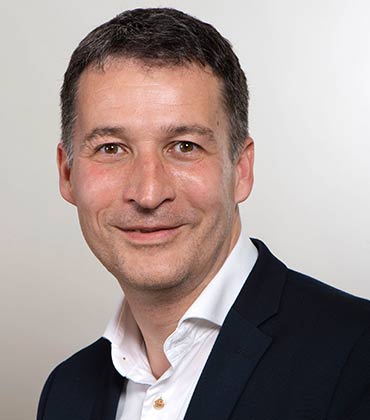
Digital Engineering at Rheinmetall Air Defense
Dr. Marc W. Honikel, Vice President, Engineering, Rheinmetall Air Defence AG
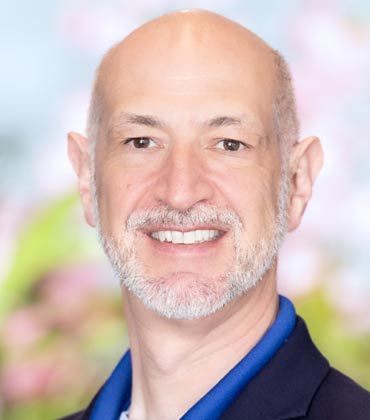
Strategic Ways to Build the Competitive Edge with Additive Manufacturing
Bob Zimering, Ph.D, Director of Quality Assurance, Lockheed Martin Space
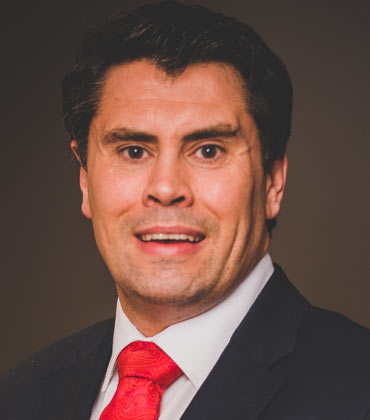
Combatting UAS - Utilising Resources Effectively in an Asymmetric Defence Environment
Alex Rose-Parfitt, Engineering Director, Raytheon UK
IN FOCUS
EDITORIAL
Leading The Sustainable Manufacturing Transformation
The European Commission’s commitment to a greener aerospace ecosystem is driving this shift. Through initiatives such as the European Green Deal, Horizon Europe, and REACH Regulation, policymakers are fostering sustainable competitiveness, regulatory adaptation, infrastructure modernization, and investment funding. The newly introduced transition pathway for aerospace further solidifies these efforts, providing a clear roadmap for the industry’s green transformation.
At the core of this progress is adopting eco-design principles, advanced materials, and energy-efficient processes. Leading aerospace companies are pioneering ultraefficient aircraft technologies, such as the RISE engine program, and expanding the use of Sustainable Aviation Fuels (SAF) to cut emissions. Additionally, cutting-edge manufacturing techniques—including additive manufacturing (3D printing), digital twin technology, and circular economy initiatives—redefine how aerospace components are produced and maintained.
The defence sector, traditionally reliant on resource-intensive manufacturing, also embraces sustainability. Lightweight components, enhanced propulsion systems, and unmanned aerial vehicle (UAV) technologies are being integrated to improve efficiency without compromising security or operational effectiveness. The development of interception drone solutions represents a significant advancement, enhancing precisiontargeting capabilities while reducing reliance on resource-heavy traditional defence methods.
Sustainable manufacturing also reshapes defence spare parts production. By adopting energy-efficient machining techniques and increasing the use of recycled materials, the industry is reducing waste and resource consumption while ensuring the durability and reliability of critical components.
Space technologies, another crucial frontier, benefit from materials science advancements and international collaboration. Efforts to minimize the environmental impact of satellite launches and manage orbital debris are becoming integral to defence strategies, ensuring that security objectives align with sustainability.
In the coming years, continued research and technological advancements will be pivotal in shaping the future of sustainable aerospace and defence manufacturing. Collaboration between governments, industry players, and research institutions will drive further innovation. By maintaining its leadership in green initiatives, Europe can set a global benchmark for sustainability in aerospace and defence, ensuring that economic progress and environmental responsibility go hand in hand. This commitment strengthens the industry’s resilience and safeguards the planet for future generations.
This magazine highlights insights from Tim Komkowski, Head of Operations & Production Management, Thyssenkrupp Marine Systems and Duane Cornella, Sr. Manager Operations Control Centers at Panasonic Avionics. We hope these valuable insights from industry leaders will assist you in making informed decisions for your businesses.

However, if you would like to share the information in this article, you may use the link below:
https://www.aerospacedefenserevieweurope.com/edition/march-2025-22.html
